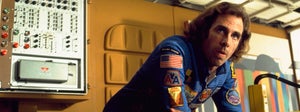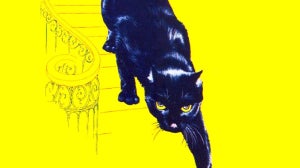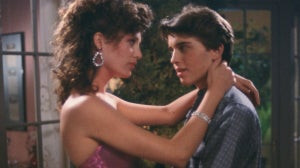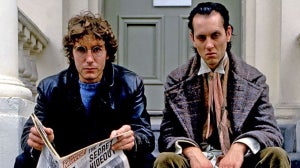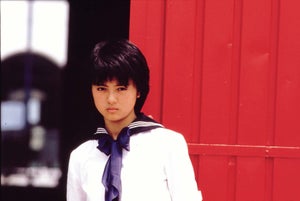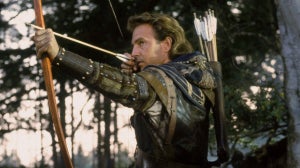
As you might expect from a directorial career that has so far spanned some forty-plus years, Michael Mann has enjoyed some notable highs and ridden out some plummeting lows. A renowned perfectionist, Mann's legendarily single-minded approach towards filmmaking has resulted in genre-defining hits such as Heat (1995), and disastrous financial failures like The Keep (1983), a film that even the director himself can scarcely bring himself to discuss. But, as is so often the case with great cinema auteurs, their lesser-known work can sometimes prove just as interesting as the more famous titles that originally helped make their name. So, as Arrow release Blackhat on UHD and Blu-ray, surely one of the director's more underappreciated films, we thought we'd take a tour through a few other deep cuts from the Mann back catalogue.
Straight Time (1978)
Okay, so this one is admittedly a bit of a cheat. Although Mann spent three months working on the screenplay adaptation of criminal-turned-crime writer Edward Bunker's novel No Beast So Fierce, his contribution ultimately went uncredited in the final film. Eventually retitled Straight Time, the movie stars Dustin Hoffman as Max Denbo, a parolee career thief struggling to adapt to life in the outside world after a six-year stretch in Folsom Prison. By turns blackly funny and grimly downbeat, Straight Time is a terrific look at the seamier side of criminal life, and deserves to be more widely seen.
But for Mann fans, it also offers an early opportunity to see him working through ideas and themes that would reoccur in subsequent films. Not only would Mann's characteristically thorough research into Folsom life pay dividends in his next project (see below) but there are scenes in Straight Time which clearly anticipate iconic moments from some of the director's classic later works. Hoffman's dinner date with Theresa Russell is an obvious dry run for the oft-quoted coffee shop scene between James Caan and Tuesday Weld in Thief (1981) and the climactic moment in which an on-the-lam Denbo risks arrest in order to avenge himself on a treacherous associate echoes Robert De Niro's fateful decision to do likewise in Heat. Mann's name may be absent from Straight Time's credits, but his fingerprints are all over the finished film.
https://www.youtube.com/watch?v=A-K6_DPjrTU
The Jericho Mile (1979)
Given that Mann's made-for-TV directorial debut nabbed him both an Emmy and a Director's Guild Outstanding Directorial Achievement award, it could hardly be called underrated, but like so many other television movies of its era, The Jericho Mile's spotty availability means that it perhaps lacks the reputation of some of the director's subsequent works. And yet the film once again lays out a clear blueprint for so much of what was to follow. Peter Strauss plays Murphy, a Folsom lifer who rises above through the daily grind of prison life by fervently dedicating himself to long-distance running. While Straight Time's Max Denbo was an early entry into the director's rogue's gallery of career criminals, his self-destructive sociopathy is entirely at odds with the careful discipline typically practised by Mann's other anti-heroes. Murphy, on the other hand, is the prototypical Mann's man: ascetically disciplined, wilfully independent, and fiercely dedicated to his own code of consummate professionalism to the exclusion of all else.
Such is his running prowess that the Folsom authorities come to realise he could plausibly compete at Olympic level, and plans are quickly hatched to allow the inmate to participate in a qualifying race, thus burnishing the prison's rehabilitative credentials. This represents the closest thing to freedom Murphy may ever know, but when he is called upon to recant the – murderous but morally justifiable – act that led to his imprisonment, his code of ethics will not permit it, leading to him being barred from the race. James Caan would shortly evince a similarly unshakeable but equally disastrous commitment to his own personal integrity in Thief, a seminal film in Mann's oeuvre, but Murphy came first. Belying its small-screen origins, The Jericho Mile is a tough little slugger of a film, and one that will amply reward any Mann fans dedicated enough to seek it out.
https://www.youtube.com/watch?v=-XvILNCff7c
The Keep (1983)
A horrific dark fantasy, made by a director who made his name shooting street-level crime dramas. Butchered by the studio that financed it, loathed by the author of the original source novel it was based on, and famously disowned by Mann himself, to the extent where he steadfastly refuses to authorise a restored Blu-ray release; why, then, include The Keep on this list? Well, while I can't disagree that the film is heavily flawed in several respects, it's worth noting that much of the blame for those flaws can be attributed to studio interference and sheer bad luck. Not only was Mann's cut of the film hacked down after poor test screening results, rendering it borderline nonsensical in places, but The Keep's visual effects designer Wally Veevers died two weeks into post-production; tragic enough in and of itself, but an even worse blow when you take into account the fact that none of the remaining crew had the faintest notion of how Veevers intended to finish the effects.
What remains is a textbook case of a film maudit; bizarre, sometimes ludicrous, filled with abrupt narrative leaps and highly variable effects sequences. And yet...it may be all but impossible to make any sort of a case for The Keep as a coherent piece of dramatic storytelling, but on a purely atmospheric level it is often stunning. The first half of the film in particular is a spellbinding exercise in sheer mood. The gorgeous production design, the hypnotic Tangerine Dream score, Mann's expressionistic visuals; all combine to produce a work that, while frequently incomprehensible, succeeds on the level of a beautiful nightmare. Mann has avoided any further forays into the fantastic since the catastrophic failure of the film, but while all signs may point towards him being better suited to portraying the mean streets of the big city than the haunted landscapes of Transylvania, I'm still glad that The Keep exists.
https://www.youtube.com/watch?v=yYs5hGJFY0k
Crime Story (1986-88)
Long before the age of prestige television made the small screen an attractive destination for brand-name auteurs, Mann had established himself as one of the pre-eminent TV showrunners of the 1980s. His biggest success was undoubtedly Miami Vice (1984-89), the slick MTV cops show whose glamorously stylised aesthetic helped define its era. But Mann's greatest television achievement may well be Crime Story, a period noir drama detailing the obsessive attempts of a Chicago policeman to bring down a ruthless mobster. In its careful procedural detail and deliberate blurring of the lines between cop and crook, the series lays the groundwork for the director's later Heat, and a case can certainly be made that it is Crime Story and not the latter film which can truly stand as Mann's signature American crime epic.
Although the series was badly handled by its parent network and came to an abrupt ending after only two seasons, even its ambiguous cliff-hanger climax feels entirely appropriate to the story its creator is telling, and so, unlike some of Mann's other prematurely-truncated television projects (Luck [2011], for instance), Crime Story can be enjoyed as a complete and fully-realised work.
https://www.youtube.com/watch?v=mWZCHFQwOOk
Miami Vice (2006)
A famously troubled production, sent soaring hugely over budget by a combination of location difficulties, disastrous weather conditions and the prima-donna antics of one of its leading men, Mann's film adaptation of his biggest TV hit seemed to please no one when it debuted in the summer of 2006. Many die-hard fans of the director saw it as a shameless attempt to trade on the show's brand name and thereby pander to a mass audience, while any mainstream cinemagoers who went in expecting a glossy exercise in 80's nostalgia were instead greeted by a melancholy and often stubbornly obtuse crime drama whose gritty, almost documentary-like atmosphere could scarcely be any further removed from Don Johnson posing in Aviator sunglasses and a pastel Lacoste polo shirt.
Mann's refusal to kowtow to expectations is somewhat reminiscent of another auteur's big-screen reimagining of their own beloved small-screen hit, David Lynch's gruelling Twin Peaks: Fire Walk With Me (1992), which was even more roundly hated upon its initial release. But just as that film was eventually (and deservedly) reappraised, so too does the moody machismo of Miami Vice merit another look – if only for the fact that Mann was able to spend well over a hundred million dollars of a Hollywood studio's money to produce a would-be blockbuster that, in its cool abstraction and utter disinterest in telling a conventional cops versus crooks story, bears more resemblance to an arthouse movie.
https://www.youtube.com/watch?v=6WCKJ7KaIZY&pp=ygUXbWlhbWkgdmljZSAyMDA2IHRyYWlsZXI%3D


